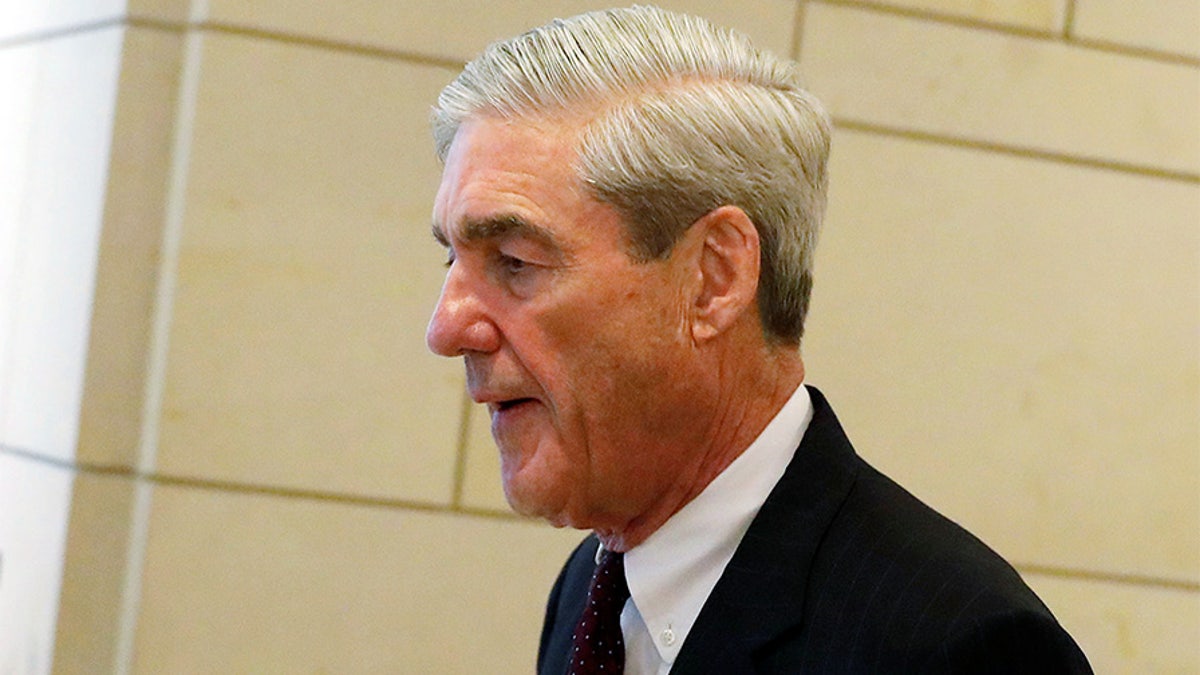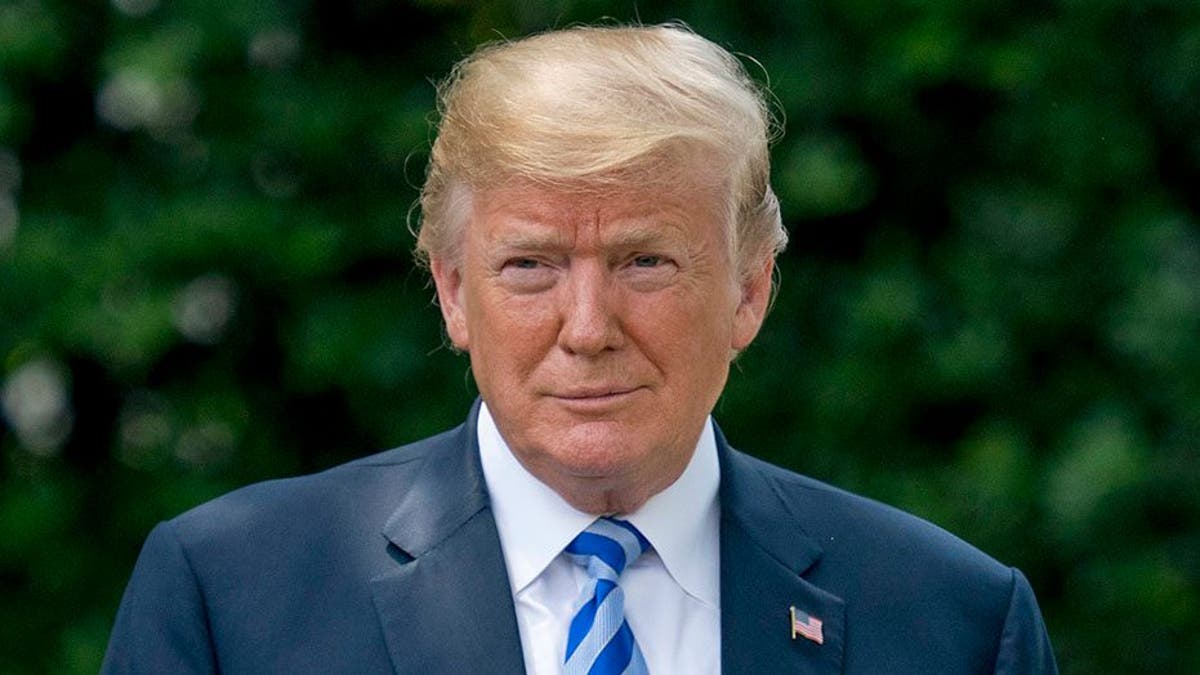
While Trump often lashes out at the special counsel’s investigation into possible ties between his campaign and Russia, the president rarely mentions Special Counsel Robert Mueller by name.
President Trump’s legal team sent a letter to Special Counsel Robert Mueller in January outlining many reasons why the president should not sit down for an interview.
Fox News has obtained the letter, which offers a detailed look at the president’s legal team and its thinking about whether he should submit to an interview, including the argument that under the law and the U.S. Constitution, Mueller faces a high bar in trying to prove he needs in-person answers from the president.

From left, former North Korean military intelligence chief Kim Yong Chol, President Donald Trump, and Kim Song Hye, Head of the Committee for the Peaceful Reunification of Korea of the Korean Workers' Party, pose for a photograph outside the Oval Office, Friday, June 1, 2018, in Washington. (AP Photo/Andrew Harnik) (Copyright 2018 The Associated Press. All rights reserved.)
Trump attorney Jay Sekulow and then-Trump attorney John Dowd challenged Mueller to prove there were questions remaining that had not already been answered in the avalanche of documents the White House and the Trump transition team provided to Mueller.
The letter, dated Jan. 29, 2018, was titled, “Request for Testimony on Alleged Obstruction of Justice.”
“This letter will address the recent request by our office for an interview with the president,” the letter began.
After laying out the areas of inquiry that Mueller has discussed with Trump’s attorneys regarding former National Security Adviser Michael Flynn and former FBI Director James Comey’s firing, the president’s attorneys challenged the need for an interview, arguing that “all of the answers to your inquiries are contained in the exhibits and testimony that have already been voluntarily provided to you by the White House and witnesses, all of which clearly show that there was no collusion with Russia, and that no FBI investigation was or even could have been obstructed.”
The attorneys also wrote that actions of the president – as the nation's chief law enforcement officer - “could neither constitutionally nor legally constitute obstruction because that would amount to him obstructing himself.”
Sekulow and Dowd expressed their displeasure at the “encumbrance” the investigation has subjected Trump to, writing, “the special counsel’s inquiry has been and remains a considerable burden for the president and his office, has endangered the safety and security of our country, and has interfered with the president’s ability to both govern domestically and conduct foreign affairs.”
The White House provided tens of thousands of documents to the special counsel’s office. Disclosures from the transition office number more than a million. In the letter, President Trump’s attorneys noted the “unprecedented access and voluntary cooperation in the collection of all documents requested from the White House, the Donald J. Trump For President Inc., and individual witnesses.”
They also claimed that the two offices had “developed a collegial and professional working relationship which encourages honesty and candor.”
The attorneys reminded Mueller that the White House could have claimed ‘executive privilege’ over the documents, but that “the president’s desire for transparency exceeded the policy purposes for the privilege under the circumstances.”
The letter laid out in detail arguments as to why the president could not have obstructed justice.
In the Flynn case, the attorneys' arguments included the following:
- The president was not under investigation by the FBI.
- There was no obvious investigation to obstruct since the FBI had concluded on Jan. 24, 2017, that Flynn had not lied, but rather was merely confused.
- Former FBI Director Comey and his deputy, Andrew McCabe, testified – under oath – that there was “no effort to impede” the investigation.
- The Flynn investigation proceeded unimpeded and resulted in a charge and guilty plea
In the Comey case, Sekulow and Dowd pointed out that “the deputy attorney general and the attorney general both agreed, in writing, that Mr. Comey should be fired, for reasons unrelated to any investigation about Russian interference.”
The attorneys also referenced the Oval Office meeting with Russian Foreign Minister Sergei Lavrov and comments allegedly made by the president that Comey was a “real nut job” and that “great pressure because of Russia” has been “taken off.” Sekulow and Dowd said that if the comments as attributed were accurate, it “does not establish that the termination was because of the Russia investigation,” and that “any president would not want someone he considered a ‘nut job’ running the FBI.”
The attorneys concluded their letter by informing Mueller that “we have advised the president that … your inquiry thus far demonstrates that no obstruction of the Flynn investigation or Russian collusion investigation appears to have occurred.” They also told Mueller on multiple occasions they have advised the president to decline to submit to an interview, writing the office lacked “a focused demonstration of need” for the president’s responses, which is required by law “even when there are allegations of misconduct by high-level officials."
A source with knowledge of the investigation told Fox News the letter was intended to “push back” on Mueller’s request for an interview, “to make him work” to prove that he is lacking information about the case that can only be gleaned from an interview with the president.
Negotiations are still ongoing between Trump's legal team and the special counsel’s office for an interview.




